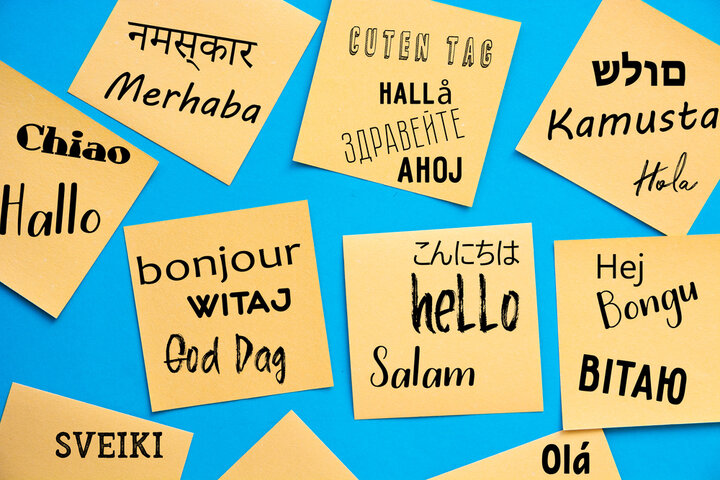Topic
Published
July 4th, 2024
Written By
Kerry Daniels
Kerry is Crown's Director of Sales and Customer Success for the UKI, Nordics and European region based in Prague.

Kerry joined Crown in 1994 in Dubai and has lived in various countries around the world. Kerry is an expert in relocation and understands the challenges faced when moving.
Get your free guide today!
Adjusting to a new country can be challenging but rewarding.
When you first arrive in your new country, everything around you feels fresh and exciting. You’re smiling at the street vendors selling fruit on every corner. You’re fascinated by the openness of the people around you.
As well as this, perhaps you’re noticing the discreet segregation of genders and ages. Or possibly feeling as though traditions or foods are much different to what you expected compared to back home. This is known as ‘culture shock’.
Most people who have travelled for more than just a short holiday have encountered this term. However, whether you’re a seasoned traveller or embarking on your first journey abroad, understanding culture shock and how to cope with it is crucial for your time overseas.
Let’s start by identifying what the term ‘culture shock’ truly is:

What is Culture Shock?
Culture shock occurs when you move abroad and your daily routine, culture, food, and the attitudes of people around you are no longer familiar. This process of recognising, understanding, and adapting to these changes is what we call culture shock.
In our usual environment, much of our behaviour—like gestures, tone of voice, how we wait in queues (or don’t), and interact—relies on shared cultural cues. We don’t consciously notice these because they’re our unspoken norms. However, in a new country, these cultural subtleties become glaringly different from what we’re used to.
Even drastically different culinary traditions can cause culture shock. Food is deeply tied to culture, and being unable to find common ingredients or comfort foods can evoke strong emotions.
Although you might not feel literally shocked, this sense of disorientation and the process of adjusting to new ways of life, attitudes, and norms is the essence of culture shock. This is a completely normal process for those moving abroad, and tends to follow a common theme:

The four stages of Culture Shock
- Excitement / The Honeymoon Stage: Upon arrival, you’re enchanted by the newness of your surroundings. You’ll notice cultural similarities and be charmed by the differences.
- Uncertainty / The Negotiation Stage: The initial euphoria fades. You might get lost, feel frustrated by the "disorganisation" of things, and become overwhelmed by the need to adjust. Irritation can set in as you try to make things work "your way".
- Adaptation / The Adjustment Stage: Gradually, you start to relax. You’ve come to terms with your new home and have balanced your emotions. You begin to understand differences, have a more positive outlook, and make efforts to fit in.
- Acceptance / The Mastery Stage: You achieve a high level of comfort in your new home. The local routines make sense, you converse with ease, and you understand cultural nuances. While you might still miss friends and family, your new life feels natural.
TIP: In some cases, culture shock can resemble or trigger homesickness and depression. If you feel you’re experiencing this, don’t try to manage it alone. Talk to your move managers or seek support to avoid isolation.
Now we’ve understood what culture shock is and some of the key steps you might encounter on your relocation journey, let’s dive into some top tips for how you can culturally adjust to a new country, and minimise the shock you may feel in your new home:

Top five tips for culturally adjusting to a new country
- Learn the Language: It might be that your new country doesn’t speak the same common language as you. Understanding and speaking the local language can significantly ease your transition. Take language classes, practice with locals, and immerse yourself in conversations to build proficiency. This will greatly increase your confidence!
- Understand Cultural Norms: Every culture has its own norms, values, and behaviors. Take time to observe and learn about them. Respect local customs, gestures, and etiquette to avoid unintentional misunderstandings.
- Make Local Friends: Building relationships with locals can provide insights into their culture and help you feel more connected. Join local clubs, attend community events, or participate in cultural exchanges to meet people.
- Document Your First Impressions: Write down what you love about your new home during the honeymoon phase. When frustration or homesickness hits, this list can remind you of the positive aspects. Crown Relocations provides journaling resources and tips to help you capture these memories.
- Find Healthy Distractions: During difficult times, find a healthy way to relax. Watch your favourite show, cook a meal from home, or enjoy a solo dance party. We can always help to suggest local entertainment and activities to keep you engaged.
Cultural adjustment takes time, so be patient with yourself and celebrate small victories along the way.
Furthermore, don’t let culture shock stop you from moving abroad. It’s a challenge, an introduction to a new culture, but it’s worth the ups and downs.
Are you thinking about moving abroad? Let Crown Relocations, an experience international removals company support you on this journey.
Get in touch with our friendly team today or get a free quote on our website today. We look forward to helping you start your relocation journey!